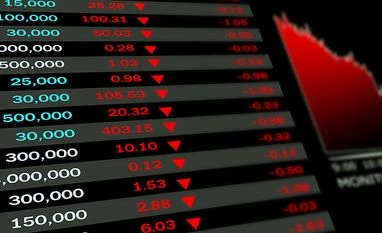Shares in Asia hit a two-year low, German stocks extended losses in what is shaping up to be their worst month in over three years, and British stocks hit their lowest since January.
Pressure on emerging market currencies intensified as investors fretted over Chinese as well as U.S. growth. Turkey's lira hit a record low and Kazakhstan's tenge plunged 23% after authorities abandoned its peg and let it float.
"Asian shares tumbled, pressured by lower oil prices and a slowdown in China ... (and) the latest Fed minutes raised concerns over the strength of the global economy, questioning whether rates will be raised next month." said David David Papier at ETX Capital in London.
The FTSEuroFirst index of 300 leading European shares fell 0.5% and Germany's DAX fell 0.6% to its lowest since January, putting it down more than 6% so far this month.
Britain's FTSE 100 share index, which has a heavy weighting of resources and energy stocks, fell 0.5% to 6,375 points. It is also at a seven-month low.
In Asia, MSCI's broadest index of Asia-Pacific shares outside Japan shed 1.6% to a two-year low, marking the fifth consecutive day of losses in what is its longest losing streak this year. Japan's Nikkei fell 0.9%.
More From This Section
U.S. futures pointed to a fall of around 0.2% at the open on Wall Street, following Wednesday's losses of almost 1%.
TENGE FEVER
Fears that growth in China, which carried the global economy following the 2008 international financial crisis, is slowing over the long term are affecting riskier assets around the world.
Commodities and emerging markets were among the hardest-hit by fear of slowdown in Chinese demand, worries that were exacerbated by Wednesday's Fed minutes that suggested policymakers are increasingly cautious on the U.S. growth and inflation outlook.
U.S. crude oil fell 0.6% to $40.55 a barrel after a fall of more than 4% on Wednesday, barely holding above its 6 1/2-year low of $40.40.
Brent crude futures also fell 0.6% to $46.88, edging near the six-year low of $45.19 touched in January.
Falls in oil and other commodity prices hit many resource-exporting emerging economies hard, and they have already suffered shocks from capital outflows as the prospect of higher U.S. interest rates some time this year looms larger.
MSCI's emerging market index set a four-year low, having fallen 22% from this year's high hit in April and coming within a stone's throw of its Oct 2011 trough.
"Markets are nervous of risks and investors are pulling funds out of emerging economies and resource exporters," said Daisuke Uno, chief strategist at Sumitomo Mitsui Bank.
In emerging market currencies, the Turkish lira briefly touched 3.0 per dollar as political uncertainty and conflict focused in the country's southeast undermined investor sentiment.
The Kazakh tenge plunged to 257 per dollar from around 197 after the central bank scrapped its trading band in another sign of the "currency wars" spreading across emerging markets.
Minutes from last month's Fed monetary policy meeting showed officials in broad agreement that the U.S. economy was nearing the point where interest rates should move higher.
But they also noted lagging inflation and a weak global economy posed too big a risk to commit to a rates "lift off".
U.S. Treasury yields fell and money market futures rolled back expectations of a rate rise in September.
The 10-year U.S. Treasuries yielded 2.11%, having declined from an eight-month high of 2.50% in June.
The dollar also lost its edge against other major currencies, falling to a three-week low against the yen before recovering to 124.00 yen, while the euro rose to $1.1125.
On Thursday Greece made a 3.2 billion euro payment to the European Central Bank on a maturing government bond, tapping cash from its first disbursement of bailout money, a senior government official said.
Gold gained, rising to a one-month high of $1,140.80 per ounce.
)